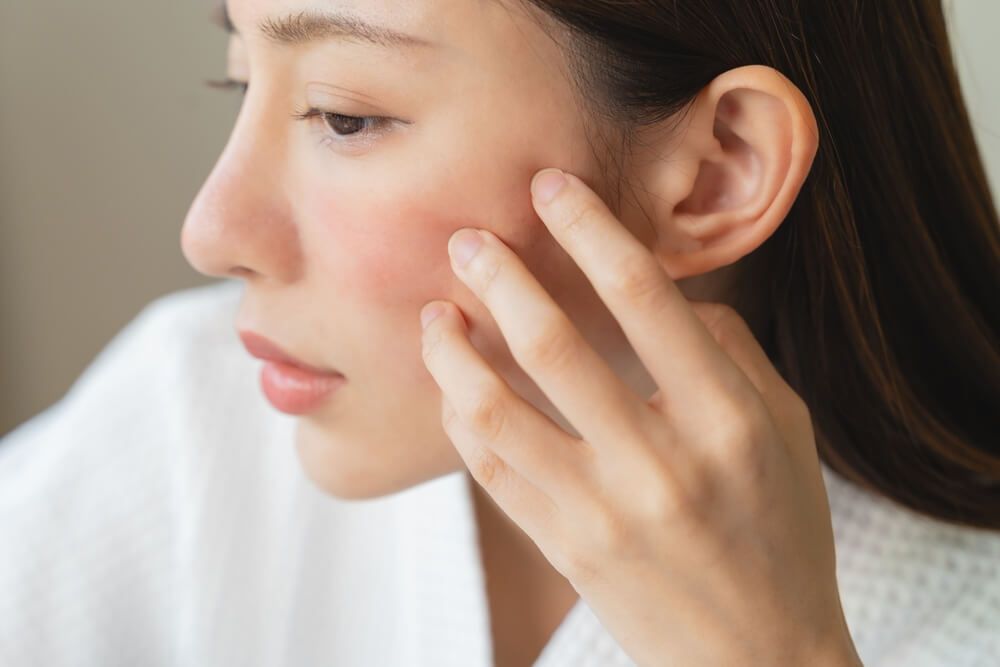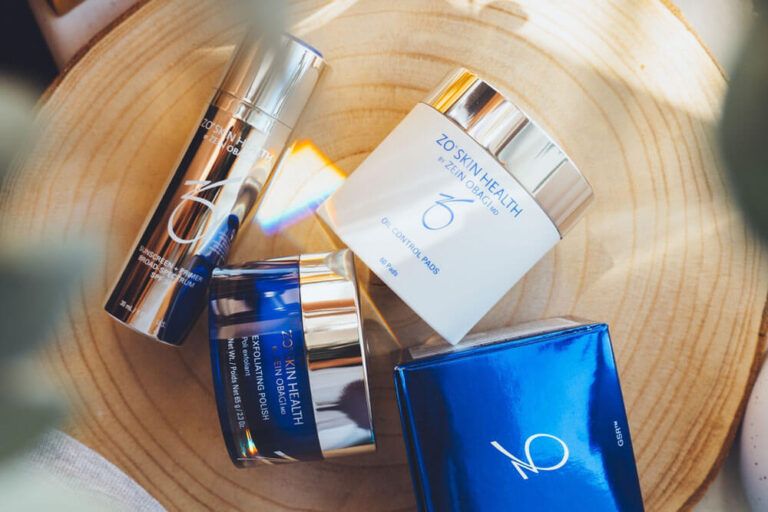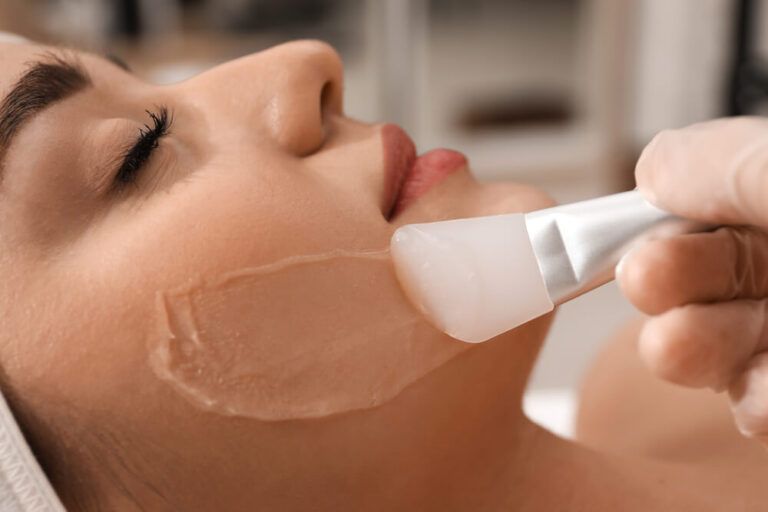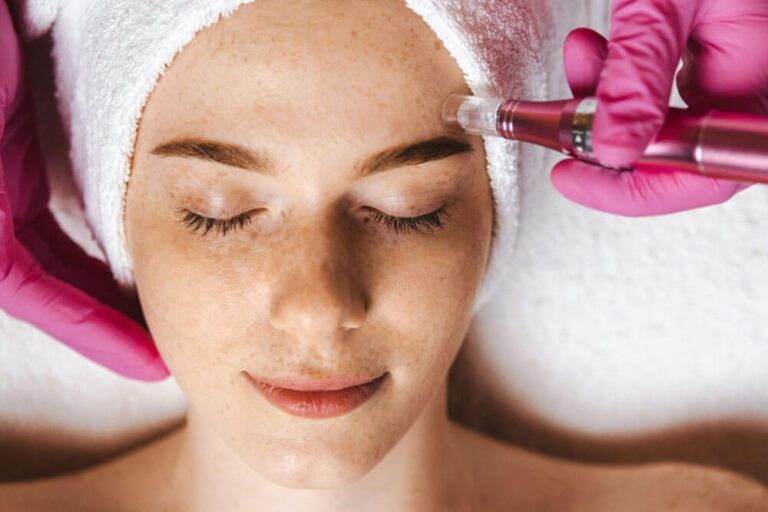Dry, flaky, or tight-feeling skin is a common concern, especially during colder months or after exposure to harsh environmental conditions. While occasional dryness is normal, chronically dehydrated skin can lead to discomfort, dullness, and premature signs of aging. The good news? The right skincare products can make a significant difference. By using hydrating formulations packed with moisture-retaining ingredients, you can restore your skin’s natural balance and achieve a smooth, healthy glow. In this blog, we’ll explore the best types of skincare products for combating dry skin, highlight key ingredients to look for, and offer expert tips on how to build a hydration-focused routine.
In This Blog:
- Understanding Dry Skin
- Key Hydrating Ingredients to Look For
- Best Types of Skincare Products for Hydration
- Skincare Routine Tips for Dry Skin
- When to See a Professional
Understanding Dry Skin
Dry skin occurs when the skin lacks sufficient moisture or fails to retain it effectively. This condition can be triggered by a variety of factors, including:
- Cold weather
- Low humidity
- Frequent hot showers
- Aging
- The use of harsh skincare products
In some cases, underlying medical conditions, such as eczema or hypothyroidism, can also contribute to chronic dryness.
When the skin’s natural moisture barrier is compromised, it becomes more prone to flaking, rough texture, redness, and a tight, uncomfortable feeling. In more severe cases, dry skin can crack or become irritated, increasing the risk of infection or inflammation. Unlike dehydrated skin, which lacks water, dry skin often lacks both water and oil, making it essential to replenish moisture while also restoring the protective lipid barrier.
Understanding the root causes of your dry skin is the first step toward effective treatment. Whether it’s environmental exposure or a product-related reaction, identifying the source can help you choose the right products and routines to relieve dryness and support long-term skin health.
Key Hydrating Ingredients to Look For
When selecting skincare products to combat dry skin, it’s essential to understand the ingredients that effectively hydrate and maintain the skin’s moisture barrier. Here are some key ingredients to consider:
Hyaluronic Acid
A powerful humectant, hyaluronic acid can hold up to 1,000 times its weight in water. It draws moisture into the skin, providing intense hydration and helping to plump fine lines and wrinkles.
Glycerin
Glycerin is another effective humectant that attracts water to the skin and helps maintain its moisture balance. It’s gentle and suitable for all skin types, even sensitive skin.
Ceramides
These lipids are naturally found in the skin and play a crucial role in maintaining the skin barrier. They help to lock in moisture and protect against environmental stressors.
Squalane
Derived from olive oil, squalane is an excellent emollient that mimics the skin’s natural oils. It’s lightweight, non-greasy, and helps to soften and smooth the skin while preventing moisture loss.
Aloe Vera
Known for its soothing properties, aloe vera is also an excellent hydrator. It’s rich in antioxidants and can help calm irritated skin while providing moisture.
Panthenol (Vitamin B5)
Panthenol acts as both a humectant and an emollient. It helps the skin retain moisture and also has a soothing effect, making it great for dry or sensitive skin.
Natural Oils
Oils such as jojoba, argan, and rosehip are rich in fatty acids and antioxidants. They help to nourish the skin, lock in moisture, and improve the skin’s barrier function.
Incorporating products with these ingredients into your skincare routine can significantly improve skin hydration and overall health.
Best Types of Skincare Products for Hydration
When it comes to combating dry skin, choosing the right types of products is just as important as the ingredients they contain. A well-rounded skincare routine includes a variety of hydrating products that work together to replenish and retain moisture.
1. Gentle, Hydrating Cleansers
Start your routine with a non-stripping, hydrating cleanser. Harsh soaps or foaming washes can worsen dryness by removing natural oils. Look for creamy or gel-based cleansers that cleanse without disrupting the skin’s moisture barrier.
2. Hydrating Toners and Essences
These lightweight liquids help prep the skin to absorb moisture more effectively. Hydrating toners and essences often contain humectants like glycerin or hyaluronic acid and can be layered to boost hydration early in your routine.
3. Moisturizers
A quality moisturizer is essential for sealing in hydration. Choose one that matches your skin type—lighter, gel-based formulas for oily or combination skin and richer creams or balms for very dry or mature skin. Moisturizers containing ceramides and fatty acids are especially helpful for rebuilding the skin barrier.
4. Hydrating Serums
Serums deliver a concentrated dose of active ingredients. A hydrating serum with ingredients like hyaluronic acid or panthenol can deeply penetrate the skin, offering long-lasting moisture and improved elasticity.
5. Facial Oils
Facial oils are excellent for locking in hydration, especially in the evening. They form a protective layer over the skin, preventing moisture loss while nourishing with essential fatty acids. They work best when applied as the final step in your nighttime routine or mixed with your moisturizer.
6. Overnight Masks
Also known as sleeping packs, these masks are applied before bed and left on overnight to deeply moisturize and repair the skin. They’re a powerful solution for very dry or stressed skin, offering a boost of hydration while you sleep.
Using a combination of these product types in your routine ensures your skin gets the layered hydration it needs to stay soft, supple, and healthy.
Skincare Routine Tips for Dry Skin
Hydrating products are essential, but how you use them matters just as much. Following a strategic skincare routine helps maximize moisture retention and supports a healthy skin barrier. Here are expert tips for building an effective routine tailored to dry skin:
Layer Products from Thinnest to Thickest
Start with lightweight, water-based products like toners and serums, and finish with heavier creams and oils. This technique ensures that each layer penetrates the skin effectively and locks in moisture as you go.
Apply Products to Damp Skin
Hydration begins right after cleansing. Applying your toner or serum while your skin is still slightly damp can help trap water and increase the absorption of hydrating ingredients like hyaluronic acid.
Exfoliate Gently and Sparingly
Dead skin cells can block hydrating products from reaching deeper layers of the skin. However, over-exfoliating can worsen dryness. Use a gentle exfoliant (preferably a mild enzyme or lactic acid formula) once or twice a week to smooth the skin without irritation.
Use Lukewarm Water—Not Hot
Hot water can strip the skin of its natural oils, leaving it more vulnerable to dryness. Opt for lukewarm water when cleansing your face, and always pat (don’t rub) your skin dry with a soft towel.
Consider a Humidifier
Dry indoor air, especially during winter or in air-conditioned environments, can sap moisture from your skin. Using a humidifier in your bedroom can help maintain skin hydration overnight.
Adjust Your Routine Seasonally
Your skin’s needs may change with the weather. In colder months, opt for richer creams and oils. During warmer seasons, switch to lighter formulations while still prioritizing hydration.
By following these simple yet effective tips, you can enhance your skincare routine to better support hydration and keep your skin soft, balanced, and radiant year-round.
When to See a Professional
While many cases of dry skin can be managed with over-the-counter products and routine adjustments, there are times when professional help is necessary. If your skin remains persistently dry despite using hydrating products, or if you experience symptoms like flaking, redness, cracking, or itching, it may be time to consult a skincare expert.
Chronic or severe dryness could be a sign of an underlying condition such as eczema, psoriasis, or contact dermatitis. A licensed aesthetician or dermatologist can assess your skin, identify contributing factors, and recommend targeted treatments or prescription-strength products.
At a medispa, professionals can also provide advanced treatments designed to boost hydration and restore the skin’s natural barrier. Options may include hydrating facials, dermal infusions, or customized skincare regimens that go beyond what typical at-home products can offer. These treatments not only address symptoms but also improve skin texture, tone, and resilience over time.
By working with a professional, you can take the guesswork out of skincare and develop a personalized approach that targets your unique concerns, helping you achieve long-lasting hydration and a radiant, healthy complexion.
Conclusion
Dry skin can be more than just a seasonal annoyance, it can impact your comfort, appearance, and confidence. Fortunately, the right combination of hydrating products, skincare techniques, and professional guidance can make a significant difference. Whether you’re looking to revamp your routine or explore advanced treatments for deep hydration, the experts at Modern Image Aesthetics & Wellness Boutique Medspa are here to help. Schedule a personalized skincare consultation today and let our team create a tailored plan to restore your skin’s moisture, glow, and health from the inside out. Your journey to beautifully hydrated skin starts here.














